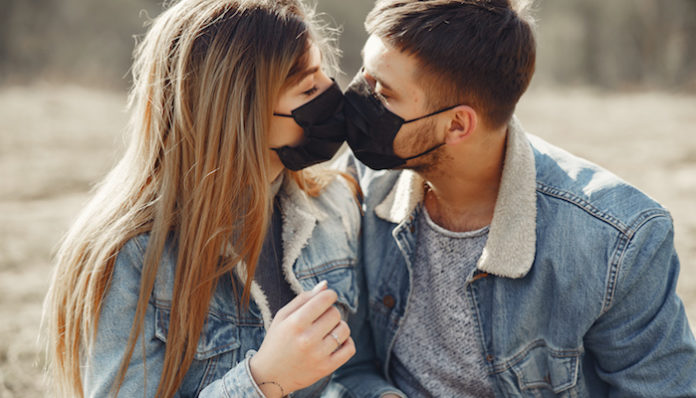
There’s a lot of things that people aren’t allowed to do because of the COVID-19 pandemic. Gathering with large groups of friends, dining at restaurants and bars, going to the gym, and hooking up with significant others or that new match on Tinder if they don’t live together. Sex has been a confusing topic since the beginning of the pandemic. We’ve been receiving mixed signals when it comes to whether we should be engaging in any form of sexual intimacy. From Dr. Oz, Dr. Fauci, and the guidelines issued back in March by the NYC Health Department, we’ve been flooded with various contradictory advice. Some of them include avoiding random hookups but engaging in sex with our long-term partners.
With the second wave attacking certain parts of the country, the NYC Health Department issued a new set of guidelines this month that still emphasizes that staying home is the best way to prevent the spread of the virus. The guidelines also state that you are your safest sex partner. But also remind us again that we should wash our hands frequently and closely monitor potential symptoms of COVID-19. This set of guidelines also introduced more information on sex specifically. For instance, it advises against rimming, which is defined in the guide as “mouth on anus” and can spread coronavirus through contact with fecal matter. So with the NYC Health Department’s blessing, here are five things you should know about sex and coronavirus:
1. Ask your new partner questions about potential coronavirus infection or recent testing.
The guidelines advise people to ask those they anticipate to engage in sex with about COVID-19 risk factors. Just as they would discuss condom use, PrEP, and other safe sex topics before they hook up. Ask about whether your partner has had any symptoms of the virus within the past 14 days. What’s more, remember that asymptomatic spread is possible and watch out for symptoms such as shortness of breath, cough, fever, or sore throat in your partner. People whose symptoms have diminished and have been gone for at least 10 days are likely no longer infectious. At the end of the day, though, remember that asking partners about their coronavirus history isn’t a perfect method.
2. Make it “a little kinky.”
The NYC-DOH suggests that getting a little kinky can help prevent the spread of the virus. For example, experimenting with positions and physical barriers such as walls that allow for sexual, but not face to face contact can be beneficial. Masturbating together at a physical distance and with the use of face coverings is also a good idea. Making things spicy doesn’t mean forgoing protection though. The guidelines still recommend dental dams and condoms to prevent contact with saliva, semen, or feces during oral sex.
3. Wear a mask during sex.
Besides warning against kissing because it can pass the virus, the guidelines also suggest wearing a mask that adequately covers your nose and mouth during sex. Even though “maybe it’s your thing, maybe it’s not,” wearing a mask adds an extra layer of protection during sex. Also, avoid sex altogether if you or your partner are feeling unwell or have a medical condition that can lead to severe COVID-19 illness.
4. Use online methods of “meeting up” if you meet partners through online dating or make a living as a sex worker.
Those who meet their partners online or make their living through sex should take a break from in-person dating and switch to virtual methods. The NYC-DOH suggests subscription-based fan platforms, video dates, and “sexy” Zoom parties as alternatives to traditional dating.
5. Use caution if you attend sex parties.
Although the NYC-DOH doesn’t recommend attending in-person sex parties since they break social distancing rules, the guidelines still give helpful information for people who still choose to go. Hosts of the parties should “limit the size of their guest list and to keep it intimate.” Attendees should go with a consistent sex partner and wear a face covering, avoid kissing, and not touch eyes, nose, or mouth with unwashed hands while there. Another tip from the department is to host parties in large, open, and ventilated spaces. This is since you’re more likely to catch the virus in small, cramped spaces. Furthermore, individuals should bring alcohol-based hand sanitizer to reduce the risk of spreading or getting COVID-19.
*The guidelines also emphasize that “having antibodies against the virus or a prior positive diagnostic test do not mean definite immunity.” Reinfection is possible despite having previously fought off the virus.
While sex may be uncomfortable to talk about, it’s necessary to discuss how to navigate this normal part of life safely. These guidelines offer some practical and necessary advice in a time where it’s so difficult to know how to stay safe. With these suggestions, you can have at least one part of your life figured out.
Featured image via Pexels


















